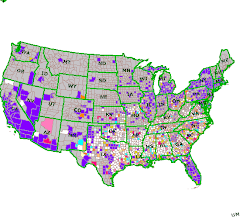When Mama received the check everyone was excited to have the money, at first Mama was happy to. When she noticed Walter was acting crazy, she thought of her husband and what he did for them.
Did Walter ever think about his father and appreciate what he did or he only wanted the money to live his dream?
NGH
Sunday, March 22, 2009
What does she want?
Throughout the play, Beneatha has a difficult time deciding on what she want to do with her life. She dates college student George and wants to become a doctor. But she also wants to experience African life with Asagai. Why does Beneatha struggle to discover her identity? What is the conflict between her African heritage and her personal ambitions?
(MPK)
(MPK)
Prometheus?
One moment in the play, George goes to the apartment to take Beneatha to the theater. Walter gets mad at George and starts making fun of him. George then says "good night Prometheus" to Walter.
Who is Prometheus? Why would George compare him to Walter?
NGH
Who is Prometheus? Why would George compare him to Walter?
NGH
Stereotypes
Ruth comes home from being at the doctors all day. Ruth talks about her trip to Mama and Ruth mistakingly says that she (the doctor) said that everything was going fine. The Younger's normal doctor is a male, not a female. When knowing this, Mama questions Ruth about what happened at her check-up. Then Ruth denies that she saw a female doctor at all for her check-up. Why does Ruth deny that she saw a female doctor? In the 1950's is there a problem with women holding meaningful jobs in American society?
(MPK)
(MPK)
Children's Rights
Walter and Ruth's son Travis misses his cerfew and was outside playing for too long. When he walks through the family's house, Ruth casualy tells him that he is going to get a beating, like it happens on a normal basis. In the 1950's, are children on a shorter leash and cannot do as many things as kids growing up today?
(MPK)
(MPK)
Mama's Plant
In the play, Mama is always worried about a plant she owns. She always tries to give it enough sunlight and water so it could grow.
How does her nourishment to the plant relate to her dream for her family?
NGH
How does her nourishment to the plant relate to her dream for her family?
NGH
Money, Dreams, and Problems
In the play, money is a big issue. Throughout the play, the whole family is always worrying about money or talking about money, even the youngest member, Travis Younger. They thought of it as their savior. Can money solve all problems? How can money affect your dreams and aspirations?
-LTC
-LTC
Subscribe to:
Comments (Atom)
Facts on "A Raisin in the Sun"
genre · Realist drama
time and place written · 1950s, New York
setting (time) · Between 1945 and 1959
setting (place) · The South Side of Chicago
protagonist · Walter Lee Younger
major conflict · The Youngers, a working-class black family, struggle against economic hardship and racial prejudice.
rising action · Ruth discovers that she is pregnant; Mama makes a down payment on a house; Mama gives Walter the remaining insurance money; Walter invests the money in the liquor store venture.
climax · Bobo tells the Youngers that Willy has run off with all of Walter's invested insurance money; Asagai makes Beneatha realize that she is not as independent as she thinks.
falling action · Walter refuses Mr. Lindner's offer to not move; the Youngers move out of the apartment to their new house in the white neighborhood; Beneatha finds new strength in Asagai.
themes · The value and purpose of dreams, the need to fight racial discrimination, the importance of family
motifs · Racial identity, the home
symbols · “Eat your eggs,” Mama's plant, Beneatha's hair
time and place written · 1950s, New York
setting (time) · Between 1945 and 1959
setting (place) · The South Side of Chicago
protagonist · Walter Lee Younger
major conflict · The Youngers, a working-class black family, struggle against economic hardship and racial prejudice.
rising action · Ruth discovers that she is pregnant; Mama makes a down payment on a house; Mama gives Walter the remaining insurance money; Walter invests the money in the liquor store venture.
climax · Bobo tells the Youngers that Willy has run off with all of Walter's invested insurance money; Asagai makes Beneatha realize that she is not as independent as she thinks.
falling action · Walter refuses Mr. Lindner's offer to not move; the Youngers move out of the apartment to their new house in the white neighborhood; Beneatha finds new strength in Asagai.
themes · The value and purpose of dreams, the need to fight racial discrimination, the importance of family
motifs · Racial identity, the home
symbols · “Eat your eggs,” Mama's plant, Beneatha's hair










